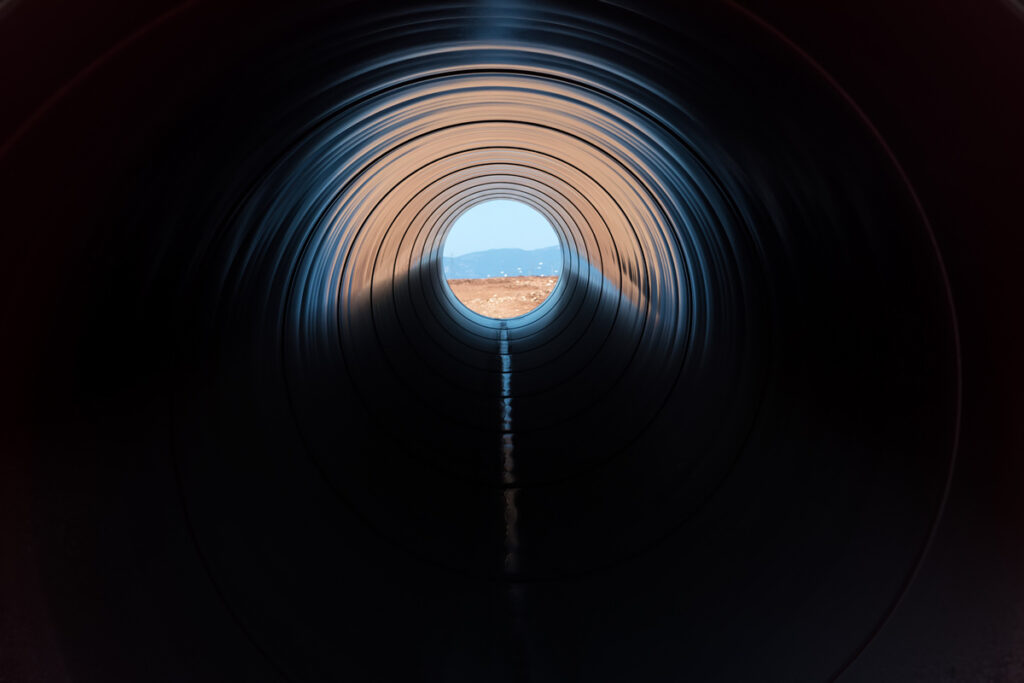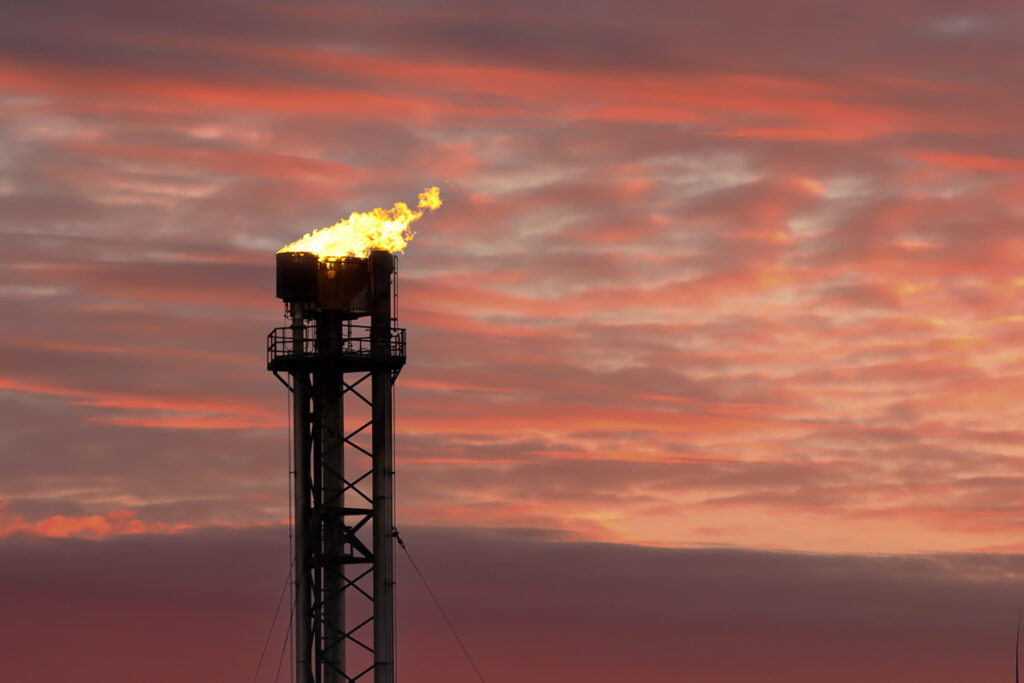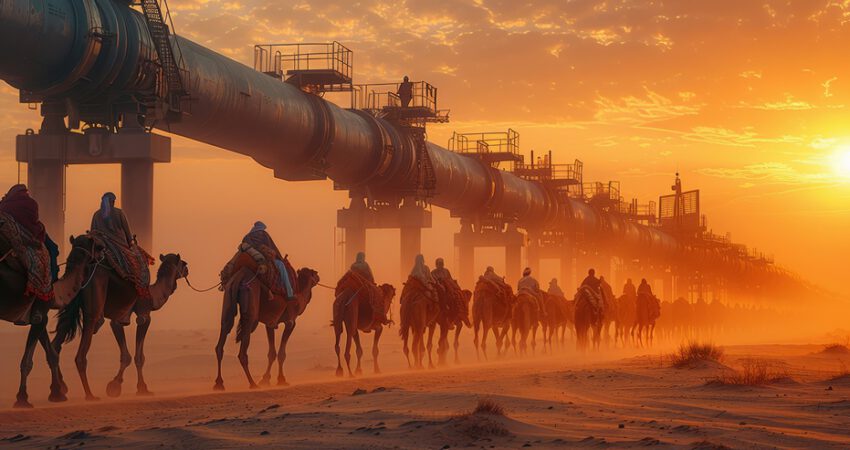Copyright: Adobe Stock #1006603252
The Trans-Caspian gas pipeline (TCP), which Turkmenistan is interested in building –despite it remaining unimplemented for decades – has recently received a new impetus for development. This at least is the cautious conclusion that can be drawn after talks held in Ankara between Turkmenistan and Turkey in April this year at which the parties signed a memorandum of understanding on strengthening cooperation in the gas sector. The talks particularly focused on reviving the TCP. In May, Turkish energy minister Alparslan Bayraktar and Azerbaijani economy minister Mikayil Jabbarov signed an agreement on cooperation in the gas sector between Ankara and Baku. This agreement envisages, in particular, the transit of Turkmen gas to Turkey via Azerbaijan and Georgia.
THERE IS SUPPORT, BUT NO MONEY
The projected length of the pipeline connecting Turkmenistan and Azerbaijan is about 300 kilometres. It is planned that the TCP will become part of the Southern Gas Corridor. According to Ashgabat, the project will take into account the interests of transit countries and guarantee its European partners constant access to resources.
But this time too, there is continuing uncertainty that the TCP project will finally be realised. Talks about bringing Caspian energy resources to international markets began in the first half of the 1990s, as soon as the Soviet Union collapsed. At that time, interest in the region’s fields increased, leading to discussions about finding different ways to transport these resources via alternative routes. But to date, Azerbaijan’s gas pipelines alone remain the dominant source of regional diversification of energy transport. Despite its vast natural gas reserves, Turkmenistan is geographically located in such a way that cost-effective gas supplies to lucrative European markets can only pass through the TCP – which is as yet unbuilt. Ashgabat has been trying for decades to realise plans to supply its gas to the European energy market, but so far without notable success.
Experts believe there are many problems preventing the TCP project from being realised. Principal among these is a lack of investors interested in this ambitious project, which according to rough estimates could cost an astronomical $20 billion.
With such an investment price, the issue of financing the pipeline becomes key. It is hardly likely that Ashgabat will be able to count on money from any European institutions however. As is well known, the European Investment Bank has decided to abandon programmes related to fossil fuels, and the European Commission has proposed to cease supporting gas projects under the TEN-E regulation. This means that Ashgabat is unlikely to gain access to financing either from the European Union or from private European investors who might show interest in the TCP in a situation like this.
There are other obstacles to financing the TCP: despite its considerable gas reserves –Turkmenistan is the world’s fourth largest producer of natural gas after Russia, Iran and Qatar – there is no certainty that the country is capable of producing sufficient quantities of the fuel. There are also doubts that Turkmenistan’s current production levels will allow it to supply the TCP with sufficient gas. To do so would likely require increasing production capacity in the country. Additional financial problems may also arise due to falling gas prices on world markets.
This assessment is confirmed by the conclusion of international rating agency Fitch Ratings: a document published on the organisation’s website states that ‘the TCP project, which involves the export of Turkmen gas to the European market, faces serious obstacles to its development.’
Western investors for the TCP have not materialised for more than 20 years. Some years ago there were reports that state-owned UAE company ADNOC, which acquired a 30% stake in Azerbaijan’s Absheron gas field in 2023, would become an investor but to date this has not happened. At the end of 2021, US company Trans Caspian Resources appeared to show interest in the project. It announced that it was looking for investors –not to implement the project itself, but to finance technical and commercial feasibility studies for its plans. Since then however, no new investors have come forward.
Turkmenistan is clearly not ready to invest in the project itself. The only interested party theoretically able to finance the TCP, albeit partially, is Azerbaijan, through whose territory gas will pass if the project is implemented. But Baku realises that the costs of constructing the pipeline will exceed transit revenues many times over, and the Azerbaijani president has spoken openly about this. ‘Of course, we will not initiate this project, because it is usually the country that owns the resources that implements the project,’ Ilham Aliyev stated at a meeting with participants of the COP29 and Green Vision for Azerbaijan international forum. He reiterated that there are no instances at all in which a transit country would take project financing issues upon itself. Aliyev is also sure that expecting help from foreign investors is fruitless, as restrictions have been introduced on European financial institutions financing fossil fuel projects.
It should be added that international companies are in no hurry to invest in this expensive project because the future of European demand for natural gas in the current circumstances is extremely uncertain.
ALL ROADS LEAD EAST

Copyright: Adobe Stock #166247457
Turkmenistan promises to produce an additional 30 billion cubic metres (bcm) of gas per year to send to Europe if the TCP is built. There are however serious doubts about whether Turkmenistan will actually be able to do this, said Ayaz Museyibov, advisor to the executive director at Azerbaijan’s Centre for Analysis of Economic Reforms and Communication Ayaz Museyibov.
Ashgabat has a huge gas field in its southeastern province of Mari Galkynysh, which is one of the largest in the world. Its reserves, together with those of the adjacent Garakel and Yashlar fields, are estimated at 27.4 trillion cubic metres. However, experts say that it will not be possible to use these deposits to fill the TCP. Firstly, Galkynysh is 985 kilometres from Turkmenbashi on the Caspian Sea, where the TCP should start. Next and most importantly, all the free capacity available at this stage of field development is already utilised for exports to China, where the majority of Turkmen exports go, under long-term contracts. From January to November 2023, Turkmenistan supplied China with 40 bcm of pipeline gas worth $8.82 billion. Moreover, Ashgabat has pledged to more than double exports to China to 65 bcm per year in the second phase of Galkynysh’s development by expanding the fourth line of the Turkmenistan–Uzbekistan–Tajikistan–Kyrgyzstan–China gas pipeline. In the third phase, Turkmenistan will be able to supply about 33 bcm annually through the planned Turkmenistan–Afghanistan–Pakistan–India (TAPI) gas pipeline. No free gas capacity has been allocated for the TCP.
Therefore, Turkmenistan can at most give Europe 5 bcm of gas from the Block 1 oil and gas field on the Caspian coast, which it is developing jointly with Malaysian oil and gas company Petronas, believes Dr Tatiana Mitrova, Research Fellow at the Center on Global Energy Policy at Columbia University.
There is a further problem associated with Galkynysh for European gas buyers, namely its high cost, due to the geological difficulties of its extraction. In particular, the deposits are located at a depth of 4-5 kilometres, and the gas contains a high amount of sulphur. Finally, there is a high risk of hydrate plugs forming in the cold season.
Tatiana Mitrova also draws attention to the fact that the Caspian region as a whole is unstable, and its authoritarian regimes also create additional obstacles for investment. ‘Turkmenistan is an authoritarian regime devoid of transparency. Revenues from hydrocarbon exports are used by the authorities primarily to enrich the ruling elites,’ she says. If this doesn’t stop Beijing, such volatility scares European gas buyers.
Ashgabat’s cooperation with Tehran in the gas sector is also on the rise. According to the results of negotiations held in July this year, in addition to existing capacity, it is planned to increase the volume of gas supplied to Iran to 40 bcm per year. Iran itself has huge gas reserves, far larger than Turkmenistan’s. However, almost all are located in the south of the country, while the high mountain ranges of the north (which is no less densely populated) is a fuel-deficient region. With no natural geographical barriers, imports from Turkmenistan become the best option.
In July, Iran decided to build a new 125-kilometre gas pipeline together with three gas pressure booster stations in Turkmenistan. This will increase the volume of gas supplied to Iran via the Dauletabad–Sarakhs–Khangiran pipeline and through the Chaloyuk gas metering station to 40 bcm per year.
While construction is underway Iran, located between Turkmenistan and Iraq, will supply Baghdad with up to 10 bcm of natural gas under swap schemes in exchange for receiving the same volumes from Ashgabat.
As well as China and Iran, Afghanistan also wants to buy Turkmen gas. Kabul has recently stepped up efforts to build the TAPI gas pipeline on its territory to gain income from gas transit. According to expert estimates, Afghanistan will be able to earn $350 million annually. In February 2024, a Taliban delegation held talks with Turkmen Deputy Prime Minister Batyr Amanov in Ashgabat. The latter said energy transfer to Afghanistan was a particular priority for the Turkmen government. In September, construction began on the key Serhetabat–Herat section of the TAPI pipeline. Afghanistan plans not only to receive income from gas transit, but also to buy gas for its northern province of Herat. As the Taliban government’s foreign minister Amir Khan Muttaqi emphasised, this region is the most densely populated in Afghanistan and will be ‘a good market for Turkmenistan.’
TURKISH INTEREST
Apart from Ashgabat, only Turkey – which expects Turkmen gas to flow to Europe through its territory – is lobbying for the TCP. At the same time, Europeans are likely to find it difficult to agree to such an option. The fact is that Ankara’s plans are sure to please Russia’s President Putin. The latter has repeatedly proposed this idea in order to ‘accommodate’ Russian gas exports to Europe, which have declined in the last two years – and to make Turkey a vast gas hub (albeit through Turkish Stream rather than the TCP). It is also not impossible that Russian gas will be channelled to Europe through Turkey under the guise of Turkmen gas. This is unlikely to please the EU, which has sought to end purchases of Russian fuel since the start of the war in Ukraine.
At the same time, Turkish leader Recep Tayyip Erdogan is playing his own game. He has calculated that if he attracts as much gas as possible from different sources to Turkey, which will then act as an intermediary in supplying Western markets, the country can quickly become the largest transit country of gas for Europe. This means that Turkey’s role and authority in the international arena will increase, giving Ankara additional tools to exert pressure on the EU on a number of rather contentious issues.
For its part, Russia is still unequivocally opposed to the construction of the TCP, citing the Convention on the Legal Status of the Caspian Sea. This document was signed by the five littoral states of the Caspian Sea in 2018, all of which must give their approval before environmentally sensitive projects can be realised. Moscow says the construction of the TCP could disrupt the sensitive ecosystem of the Caspian Sea. It is clear though that it is not the environment that worries Russia, but Turkmen gas, which could create competition for its own.
WHAT ABOUT EUROPE?

Copyright: Adobe Stock #425607915
Western politicians and diplomats have repeatedly addressed the Trans-Caspian Corridor issue recently. For example, the issue was on the agenda for European diplomacy chief Josep Borrell and US Assistant Secretary of State for South and Central Asian Affairs Donald Lu during visits they made to the region. They did not talk about any specifics however, merely pointing out that Central Asian countries need to be freed from excessive dependence on Russia and China. European Commission Vice-President Margaritis Schinas also spoke about the TCP during his visit to Turkmenistan. He pointed bluntly to the extremely high cost of building the pipeline and the fact that there are still no investors. ‘Such economic projects are not decided by politicians. They are of strategic interest, but commercial interests should be at the centre of it,’ Shinas said when asked about the TCP’s prospects.
Daniel D. Stein, a senior fellow at the Global Energy Centre, also believes that the prospects of finding an investor for the TCP outside Turkmenistan are nil. According to him, ‘it is hard to find an example outside of North America of a transnational pipeline being developed as a merchant project without the financial involvement of an upstream resource holder.’
Even if investors are found and Ashgabat finds enough gas to fill the TCP, it is unlikely that Turkmen gas can be delivered to Europe at an acceptable price, Stein continues. ‘Not only is the cost of developing the gas high – given that Turkmen gas has a high sulphur content – but the entire delivery chain is also expensive,’ he states.
Another obstacle in the way of Turkmen gas to Europe is that Turkmenistan is responsible for the world’s largest number of fossil fuel-powered methane-emitting facilities, which is unacceptable to the EU, given its methane strategy. Fitch Ratings in particular emphasises this, pointing out that the project will be very capital intensive and will require a large base of repeat buyers to support it. The ratings agency warns that it may be difficult to find such buyers as the EU intensifies efforts to decarbonise its energy mix and the price of hydrocarbons in the region continues to rise.
Allan Mustard, co-founder and co-chairman of energy start-up Trans Caspian Resources and former US ambassador to Turkmenistan, makes a similar assessment, stating that the window of opportunity is closing fast and the policy shift from hydrocarbons to renewables is having a significant impact on support for the project.
Such wide-ranging analysis shows that in the current climate, EU purchases of Turkmen pipeline gas in large volumes and under long-term contracts are likely to be impractical. For now, without financing, Turkmenistan will not be able to translate its ambitious projects for the TCP’s construction and access to European markets into reality.

